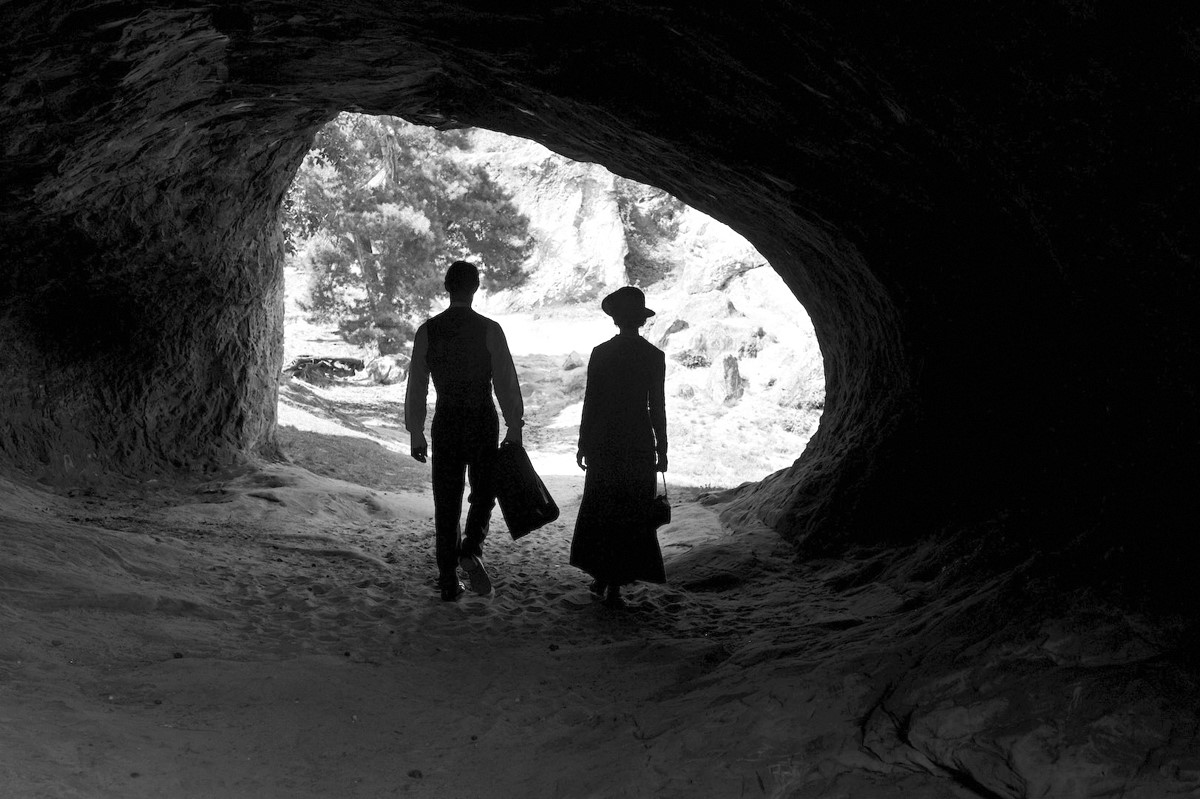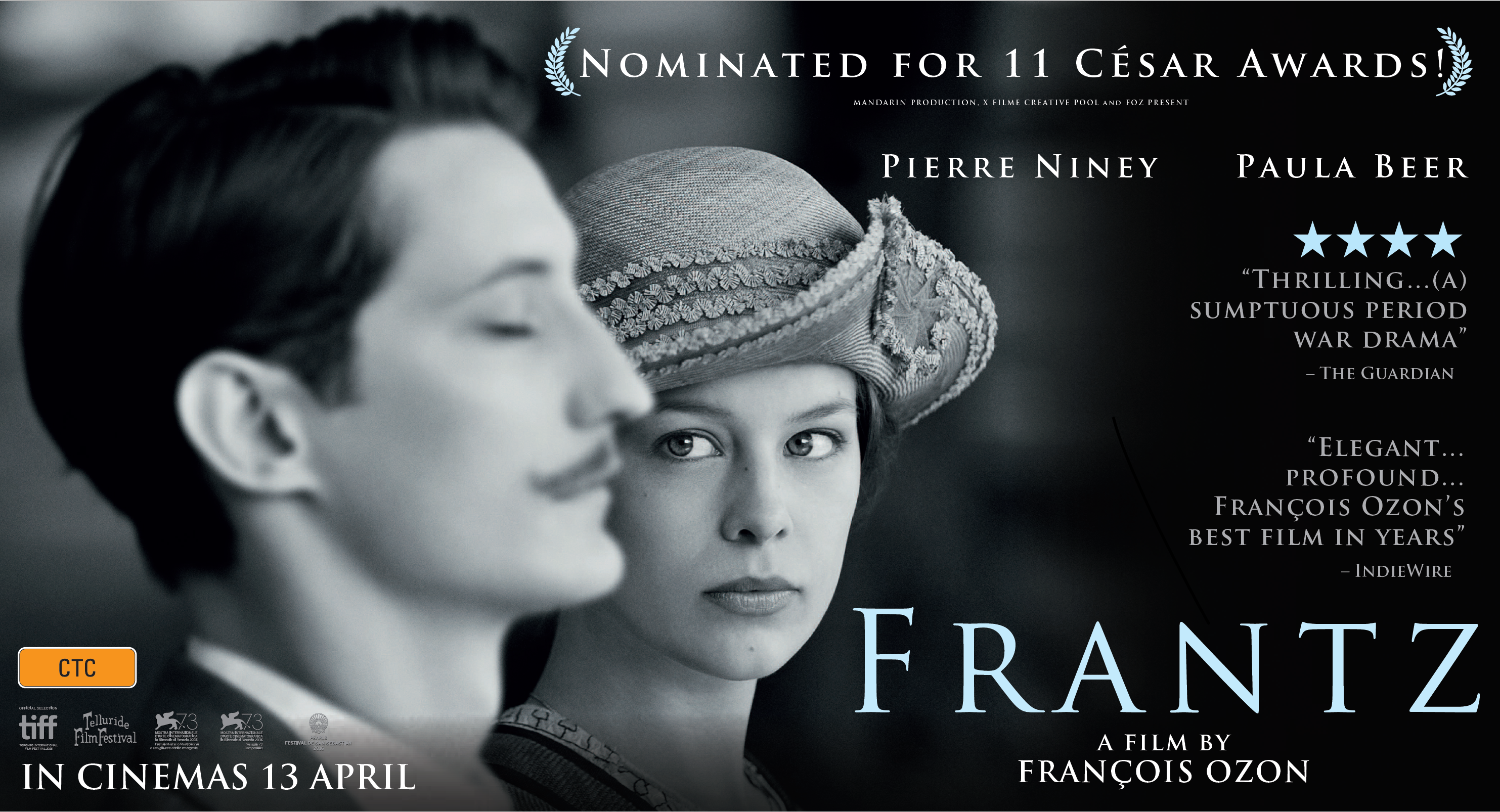With Frantz, highly prolific writer-director François Ozon mines the stories of the Great War seemingly espousing there is still something left unsaid for cinema exploring this time in modern history. The auteur’s French/German drama showcases the aftermath of war and the struggle of mourning parents and widow of the film’s titular character, Frantz (Anton von Lucke). With the backdrop of a fractured continent Ozon depicts a nation reeling from more than just the loss of war but similarly that of a broken national identity.
Ozon leaves an air of mystery to Frantz, the fallen German soldier, leaving the viewer at odds to the nature of his relationship with those who feel his loss most heavily: his parents, Hanz and Magda (Ernst Stötzner and Marie Gruber) and widow, Anna (Paula Beer). Tinged with a lingering scent of homoeroticism the French director’s exploration of 1919 small German town Quedlinburg is one of melancholy and hostility. The war has left many of its townspeople without husbands, fathers, sons and brothers and the grief of its aftermath does operate as a necessary reminder for the current political climate with global tensions heightening and the rise of rampant nationalism. Ozon’s focus is less an exploration on the nature of war, however, and more the crushing burden left for those whose loved one’s were sent away and did not return. The broken promises by those who never arrived home are the hardest badges to wear and Ozon’s ability to imbue sympathy for all parties of the war involved is inspired.

Despite this, however, the slow pace coupled with heavy handed transitions from black and white to coloured photography hinders the film’s artistic merits and downgrades its emotional potential to something relatively shallow. Such an artistic choice is largely a shame as it weighs heavy on Pascal Marti’s beautiful cinematography of Germany and France and creates a simplistic binary of the ways people feel relief from the crushing grip of mourning a loved one. At this stage of Ozon’s career, his thirty-seventh feature, it seems a choice slightly immature for such a seasoned player. Paula Beer, however, gives a stirring performance and a lesson in subtlety as widowed Anna who finds an enigmatic traveller placing flowers at her husband’s grave. At twenty-one her performance is beyond her years and her character’s arc proves a declarative role for the relative newcomer and a deserved recipient of her Venice Film Festival accolade last year. Likewise, Pierre Niney as the mysterious French compatriot of Anna’s late husband, Adrien, gives an intriguing performance as the viewers are unaware of his relation to Frantz and does maintain their attention for the feature’s duration. Yet, a sojourn across Paris for Anna proves taxing and despite the beauty of the scenes her wide-eyed gawking of the city against her humble life in a small German town is less focused.
In spite of Frantz’s short-comings the first half of Ozon’s film establishes intrigue and a showcase of the realities of war away from the battlefield. Such an exploration of both personal grief and national mourning is at its best when located within the context of Frantz’s small hometown in Germany. With solid performances from all principal players, Ozon’s focus for this outing remains a little confusing. Perhaps his desire to stray from Ernst Lubitsch’s Broken Lullaby (1932) which used the same source material as Frantz proved artistically stifling. Lubitsch’s film was banned from Czechoslovakia due to its pacifist leanings and likely packed more punch for a post-war society of the thirties. Yet his take is largely able to escape the trappings of a mundane remake notwithstanding it being an atypically muted affair from Ozon.
Frantz is now showing on limited release

© 2015 MANDARIN PRODUCTION – X FILME – MARS FILMS – FRANCE 2 CINEMA – FOZ-JEAN-CLAUDE MOIREAU
